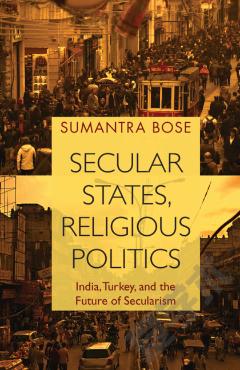Secular States, Religious Politics —— India, Turkey, And The Future Of Secularism
----- 世俗国家、宗教政治:印度、土耳其和世俗主义的未来
A pioneering comparative study of the two major attempts to build secular states - where the state's constitutional identity and fundamental character are not based on or derived from any religious faith - in the non-Western world. This book explains the origins, evolution and latterly the decline of secularism as a core principle of the state in India and Turkey. The anti-secular political transformations of the twenty-first century are the rise of a Sunni-Islamist definition of Turkish national identity to hegemonic power, and Hindu nationalism as India's pre-eminent political force. Both secular-state models adopted a similar operational doctrine of state intervention in and regulation of the religious sphere, rather than a Western-style separation of church and state. But, Turkish state-secularism took a culturally deracinated and harshly authoritarian form that led to its failure, whereas India's secular state - though flawed in practice - followed a culturally rooted and democratic path that makes secularism indispensable to India's future.
{{comment.content}}








 京公网安备 11010802027623号
京公网安备 11010802027623号